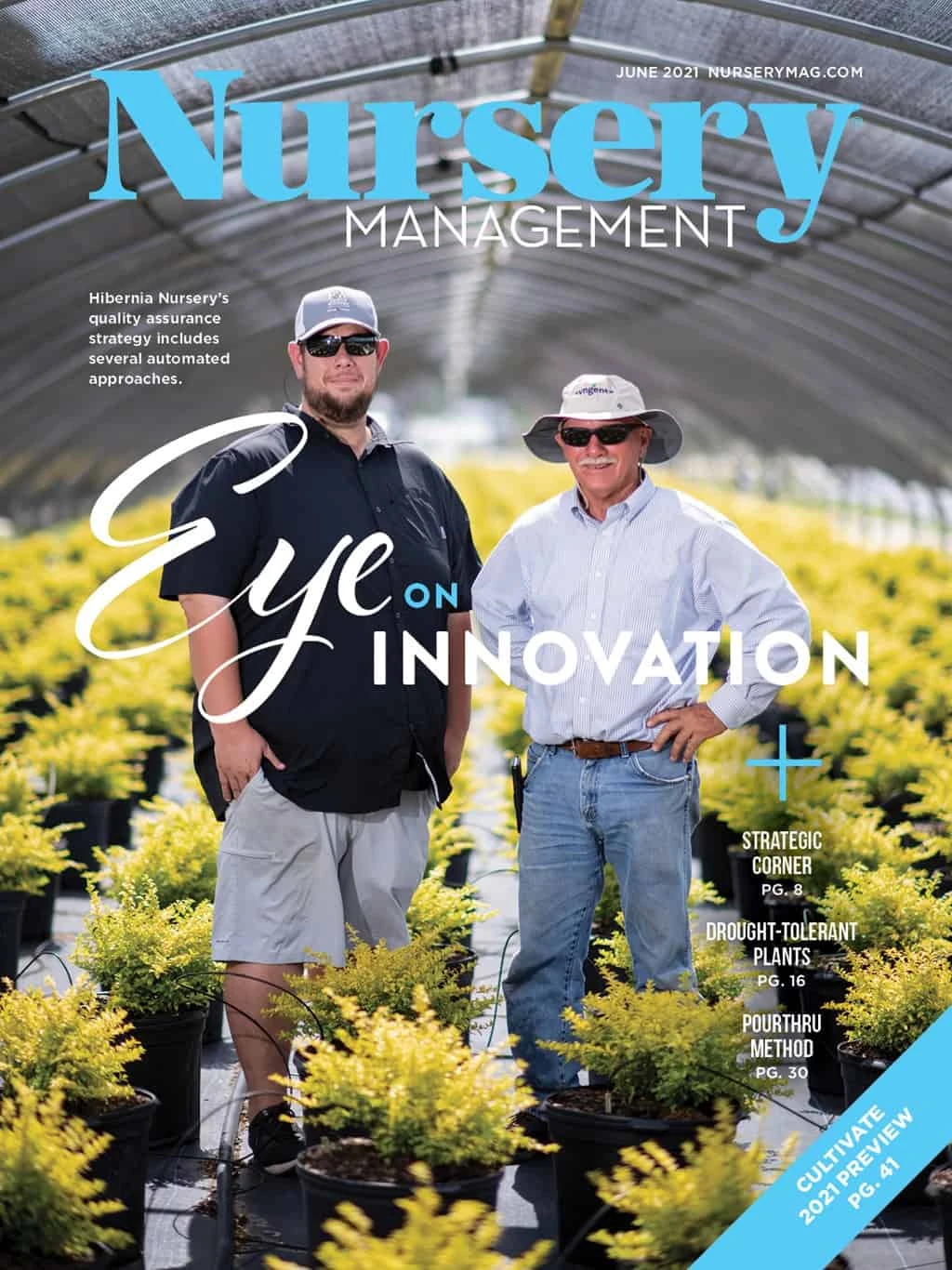
The Texas freeze has put a squeeze on nursery inventories. The nursery market is as short as we have seen it in quite some time, and supply continues to tighten as shipments to Texas have increased threefold since Valentine’s Day. This accelerating shortage has led to a rapid increase in prices and a reduction in the size of plant materials available for shipment. In some cases, crops are completely sold out and certain core items are unavailable at any price.
Nurseries with available inventory are experiencing a surge in sales and higher prices for now. But do they have the inventory depth and discipline to maintain a steady flow of availability? Selling plants during a spring shortage is fast and frenetic. Without a clear sales plan, weekly targets, and the ability to track inventory movement in real-time, nurseries run the risk of selling too fast.
Selling too fast can be as deadly as selling too slow because overselling creates inventory gaps. These gaps limit future sales and cash flows, sending loyal customers to the competition. Nurseries that sell out of inventory will have to wait months to bring fresh inventory online. With nothing to sell, these nurseries will have plenty of time to consider how much money they left on the table when plants were flying out the door.
In an effort to manage inventory, some nurseries have chosen not to ship to Texas or not to take on new customers this spring. Certain nurseries allocate inventory to existing customers, set quotas on orders, or limit sales to brokers. These measures help to limit the flow of inventory, but they are like fingers trying to plug holes in a mighty dam. When there's a shortage, the market will burst through one way or another.
Increasing sales prices is the only effective way to reduce demand and relieve the pressure on inventories. Anyone who has taken a course in macroeconomics knows how this works. When demand exceeds supply, prices will increase until the market comes back into equilibrium. Just how much prices need to increase will depend on the elasticity of the demand. In theory, this law is simple and rational, but in practice, things get a little messy in our industry. Many suppliers hesitate to increase prices, and prices rarely climb as high as the market will allow. There seems to be an invisible ceiling on pricing.
“Let’s not raise prices too much and risk being perceived as taking advantage of the situation,” some say.
“We need to help our customers now and keep prices low, because one day we will need the customer to support us when the shoe is on the other foot,” others might say.
Whatever the rationalization may be, the facts remain the same and the law of supply and demand cannot be controverted.
When we fail to properly value our inventories, the market is in disequilibrium and the customer is the one to suffer. Undervaluation causes inventories to sell at an unsustainable rate, creating industry-wide inventory gaps. These shortages result in construction schedule delays, failed inspections, missed market opportunities, and other downstream consequences that cost the customer far more than a price increase.
In my estimation, nursery inventories remain critically undervalued despite the price increases this spring. In some cases, product lines may be as much as 20-30% undervalued. Inventories are moving too fast, inevitably leading to more shortages in the future. It will be interesting to see what happens this summer and next fall. My prediction is that demand will continue to be strong, inventory gaps will widen, and prices will continue to increase — too slowly.
With higher prices and shortages on the horizon, the nursery industry will join the ranks of the growing number of industries facing the same. Just look up the lumber futures (LB on the Chicago Mercantile Exchange) or the steel futures (HRC on the New York Mercantile Exchange). Shortages and inflationary trends seem to be everywhere. Oil and gas prices are up. The price of plastics, including irrigation materials and nursery supplies, are up. Everywhere you look, materials are short and input prices are increasing.
It does not take a degree in economics to know what effect this inflation will have on nursery profits if nursery prices do not increase commensurately. Most significantly, the cost and availability of labor are under tremendous pressure. There is increasing competition for labor from the construction industry and other industries hiring workers off the farm. Additionally, a multitude of factors are taking workers out of the workforce (i.e. Covid relief payments, high unemployment benefits, immigration challenges, and the aging of our core agricultural workforce). On top of all these factors, 25 states increased their minimum wage this year with some states, including Florida, Illinois, Massachusetts, and California, passing laws that will increase the minimum wage to $15 per hour.
Expect a $15 minimum wage to increase the total nursery cost of goods by at least 10%. And that is just labor rate inflation. Add on top of that the higher cost of most input materials, and you can expect nursery production costs to increase 20-30% in the coming years. Whatever price increases have taken place this past spring will not offset these higher costs. Hopefully, we see more rational pricing decisions kick in this summer. The bottom line is that we need to keep up with inflation and market demand, or profits will get left behind. NM

Timothee Sallin is co-CEO of IMG Enterprises, the parent company of Cherrylake Inc. and IMG Citrus Inc. Timothee is passionate about promoting sustainable agricultural and landscape practices, as well as innovation in technology and organizational leadership. He graduated from the University of South Florida with a degree in economics and international studies. He’s also a graduate of the University of Florida’s Wedgworth Leadership Institute for Agriculture and Natural Resources. www.cherrylake.com

Explore the June 2021 Issue
Check out more from this issue and find your next story to read.
Latest from Nursery Management
- John Ruter shares UGA's latest woody and herbaceous ornamental plant breeding projects
- Conor Foy joins EHR's national sales team
- Pantone announces its 2026 Color of the Year
- Syngenta granted federal registration for Trefinti nematicide/fungicide in ornamental market
- Get to know Kayela Aeppli
- HILA 2025 video highlights: John Gaydos of Proven Winners
- Q&A with Justin Bartlett
- Be the best choice





